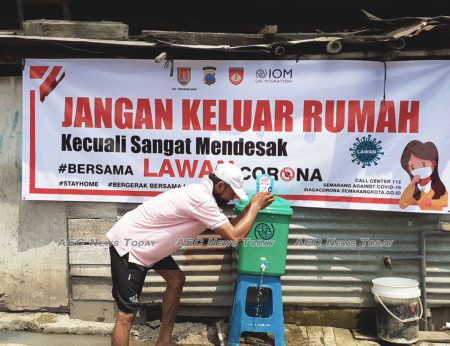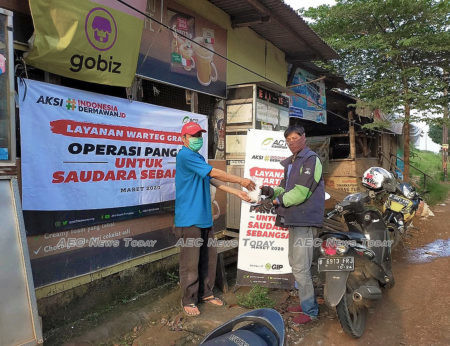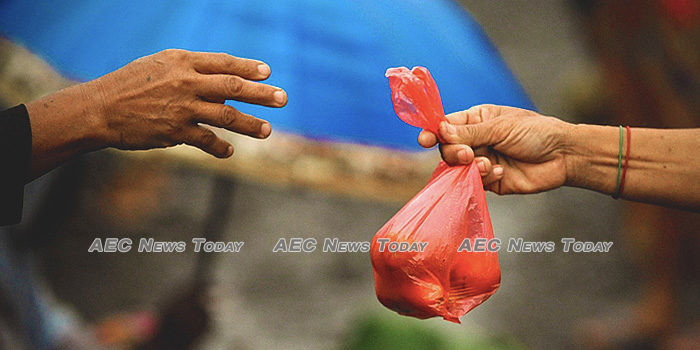Indonesia is at a critical juncture on how it protects and responds to the needs of its millions of urban poor. It is clear that urban poor populations could disproportionately suffer from—and contribute to—the spread of COVID-19 due to their lack of adequate housing and basic services.

With large-scale social restrictions in place, those who earn daily wages as informal workers are facing dual blows to health and livelihood. Without a sufficient response that addresses their basic needs, these urban poor and near-poor Indonesians — who will likely fall deeper into poverty as this crisis becomes protracted — are most at risk.
Besides enhancing testing, contact tracing, and isolation of those who have been in contact with people who’ve tested positive, measures to support vulnerable populations are more urgent than ever.
To enhance the resilience of the country’s urban poor, two complementary areas of intervention are needed: one that cushions the economic impact of the disaster, and one that provides the basic services needed to stay safe and healthy.
Roughly 60 per cent of all workers are employed in the informal sector. Of those, 40 per cent who are engaged in non-agricultural work live in cities. Their income varies widely depending on social interactions with the community—increasingly impossible with the new lockdown measures.
Promising programmes introduced
The government has reintroduced Direct Cash Assistance (BLT), a temporary unconditional cash transfer programme previously disbursed in 2005, 2008, and 2015 to help poor households cope with economic shocks.
It has also launched a new pre-employment program in anticipation of unemployment and has increased benefit amounts for its non-cash food assistance program (BPNT) and its conditional cash transfer program (PKH) which targets poor families with children. These initiatives are promising.
To support the rapid expansion and long-term resilience of social protection programmes, the government should also prioritise investments in capacity building for programme administration.
Increasing administrative capacity for data entry and verification at this critical time could improve targeting and delivery of benefits and help refine its integrated database of programme beneficiaries. This would enable the government to optimise coverage and help close the last mile gap in poverty reduction.
No handwashing facilities
An estimated 30 million city residents—1 in 5—in Indonesia do not have access to handwashing facilities with soap and water. For the millions who live in slums, the overcrowded, unsanitary conditions are kindling for a swift and sudden wildfire of disease. This must be prevented. Up to May 8 Indonesia had reported 12,776 cases of COVID-19 and 930 deaths; the most in Asean.
As an immediate response, there should be basic infrastructure such as handwashing stations in slum communities.
Handwashing buckets with spouts, like those used to contain the 2014-2016 Ebola outbreak across West Africa, can be quickly and cheaply distributed at the community, neighbourhood, or even household levels.

Buckets can be equipped with foot pumps that activate the flow of water to prevent transmission from touching the same spigot.
Encouraging citizens to promote hygiene awareness could also help alleviate the increasing pressures on community health clinics (Puskesmas) and larger healthcare facilities.
Governments could partner with local non-governmental organisations (NGOs) to mobilise teams of residents that would be responsible for raising awareness on COVID-19 infection prevention and control. These teams could also form systems for contact tracing in these hard-to-reach communities.
To build long-term resilience, the government should prioritise programmes that enhance access to water supply and sanitation for the urban poor as well as strengthen and expand community healthcare systems.
Investments in healthcare delivery and infrastructure at this critical time will also further the government’s goals to reduce maternal mortality and deliver clean water and sanitation to households by 2024.
Whether through earthquakes or disease, history shows us that disasters present critical opportunities for transformative change in societies. Life-saving advancements in public health, such as water supply and sanitation systems, have sprung from the urgent need to curb outbreaks of infectious diseases.
Today, the COVID-19 crisis presents a pressing opportunity to rethink public health, infrastructure provision, and social protection systems. With an eye toward the future, we must find ways to make our cities more resilient without compromising the interdependence that holds our society — including the urban poor — together.
This article was written by Joris van Etten, senior urban development specialist, Southeast Asia regional department and Tiffany M. Tran, Human settlements expert (consultant), Southeast Asia regional department. It first appeared on the Asian Development Blog under a Creative Commons License and is produced here with its permission.
Feature Photo Asian Development Bank
Related:
- Poverty a Top Concern, Indonesia Tries to Go Soft on its COVID-19 Lockdown (VOA)
- Assessing a Potential Coronavirus Lockdown in Indonesia (The Diplomat)
- Covid-19, inequality and Jakarta’s urban poor: resilient, but at great risk (Indonesia at Melbourne)
In 2017, ADB operations totalled $32.2 billion, including $11.9 billion in co-financing.
Latest posts by Asian Development Bank (see all)
- RRTS: Increasing inter-island trade in the Philippines through island hopping – June 22, 2020
- Bayan Bayanihan brings food and hope to the poorest of the poor – May 21, 2020
- COVID-19: the time to act on food security is now – May 10, 2020
- No handwashing for 1 in 5 Indonesians as COVID-19 runs wild – May 8, 2020


